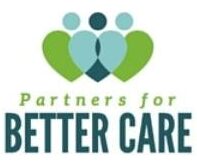The journey to addiction recovery is a challenging one, filled with numerous obstacles and temptations along the way. While achieving sobriety is a significant accomplishment, maintaining it and avoiding relapse can be even more demanding.
Relapse is a common occurrence in the recovery process, but it’s crucial to understand that it’s not an inevitable setback. By equipping yourself with the right strategies and a strong support system, you can significantly reduce the risk of relapse and enjoy a fulfilling life in sobriety.
Before we get started on how to avoid relapse during addiction recovery, we first need to identify what kinds of things or situations can cause a person to relapse to begin with.
What things can cause a person to relapse
Relapse is a complex and multifaceted process, and there are various factors that can contribute to a person’s return to substance use or addictive behaviors. While not an exhaustive list, here are some common triggers and causes of relapse:
Stress
High levels of stress can overwhelm an individual and make them more susceptible to using substances as a coping mechanism.
Cravings
Intense cravings for the substance can be challenging to resist, particularly during early recovery stages.
Negative Emotions
Emotions like sadness, anger, anxiety, or loneliness can trigger the desire to use substances to numb or escape from these feelings.
Social Pressure
Peer pressure or social situations where substance use is prevalent can be tempting for someone in recovery.
Environmental Triggers
Being in places or situations associated with past substance use can evoke strong cravings and memories.
Overconfidence
Feeling overly confident about one’s ability to stay sober without taking necessary precautions can lead to complacency and, ultimately, relapse.
Lack of Support
Insufficient or inadequate support systems, such as a lack of family or friends who understand the recovery process, can make it harder to stay sober.
Comorbid Mental Health Disorders
Co-occurring mental health disorders like depression, anxiety, and even autism can exacerbate cravings and make it more challenging to maintain sobriety.
Physical Pain or Illness
Chronic pain or illness can lead to the use of substances for pain relief, even if it was not the primary addiction.
Celebratory Events
Positive life events like weddings, birthdays, or celebrations can trigger the belief that using substances is acceptable in moderation.
Financial or Legal Problems
Financial stress or legal issues can overwhelm individuals, leading them to revert to substance use as a coping mechanism.

Boredom
A lack of structured activities or goals can result in boredom, making substance use seem more appealing.
Exposure to Triggers
Exposure to movies, music, or individuals who glorify or promote substance use can be a powerful trigger.
Lack of Coping Skills
Inadequate coping skills to deal with everyday challenges can leave individuals vulnerable to relapse.
Overconfidence
Some individuals may become overly confident in their ability to control their substance use and believe they can use casually without consequences.
How to avoid relapse
Now that we know what kind of things can cause us to relapse, we can work even harder at avoiding them. So without further ado, here are some strategies for avoiding relapse.
Seek Professional Treatment
The first step in avoiding relapse is to seek professional treatment. Rehab programs, counseling, and therapy provide the foundation for recovery. A treatment plan tailored to your specific needs helps address the underlying causes of addiction and equips you with the tools to cope with triggers and cravings.
Identify Your Triggers
Understanding your triggers is essential for relapse prevention. Triggers can be people, places, emotions, or situations that evoke the desire to use substances. Keep a journal to track your triggers and develop strategies to avoid or manage them effectively.
Build a Support System
A robust support system is crucial for maintaining sobriety. Surround yourself with friends and family who understand your journey and are committed to your recovery. Additionally, consider joining support groups or attending 12-step meetings where you can connect with others facing similar challenges.
Develop Coping Mechanisms
Stress, anxiety, and emotional turmoil can be powerful triggers for relapse. Learning healthy coping mechanisms, such as mindfulness, meditation, exercise, or art therapy, can help you manage these emotions without resorting to substances.
Create a Structured Routine
Establishing a daily routine can provide stability and purpose, reducing the idle time that may lead to cravings. Include activities that promote physical and mental well-being, such as exercise, work or volunteering, and pursuing hobbies.
Set Realistic Goals
Setting achievable goals can boost your self-esteem and sense of purpose. Break down larger objectives into smaller, manageable steps to celebrate your progress along the way. Achieving these milestones can reinforce your commitment to sobriety.
Practice Relapse Prevention Techniques
Therapists often teach relapse prevention techniques, such as recognizing the early warning signs of relapse, developing a crisis plan, and using cognitive-behavioral strategies to change thought patterns associated with substance use.
Regularly Attend Support Meetings
Regular attendance at support group meetings, such as Alcoholics Anonymous (AA) or Narcotics Anonymous (NA), can provide ongoing encouragement and accountability. Sharing your experiences and hearing from others can reinforce your commitment to recovery.

Healthy Lifestyle Choices
Taking care of your physical health plays a significant role in relapse prevention. Eating a balanced diet, getting enough sleep, and staying hydrated can help stabilize your mood and energy levels, reducing vulnerability to relapse.
Maintain Open Communication
Effective communication is vital in recovery. Be open and honest with your support system about your thoughts and feelings. If you’re struggling or experiencing cravings, sharing your challenges can lead to valuable guidance and encouragement.
Learn from Relapses
Relapse, while discouraging, can also be an opportunity for growth. Instead of viewing it as a failure, consider it a lesson. Analyze what triggered the relapse and use that knowledge to strengthen your relapse prevention strategies.
Stay Positive and Patient
Recovery is a lifelong journey, and setbacks can occur. Maintaining a positive attitude and practicing patience with yourself are essential. Understand that sobriety is achievable, and setbacks do not define your entire recovery experience.
Summary on avoiding relapse
Avoiding relapse in addiction recovery requires commitment, resilience, and the right strategies. It’s crucial to remember that recovery is an ongoing process, and setbacks do not diminish your progress or potential for lasting sobriety.
By seeking professional treatment, building a robust support system, and implementing relapse prevention techniques, you can navigate the path to recovery with confidence and enjoy a healthier, substance-free life. Remember that you are not alone, and there is hope for a brighter future in sobriety.

